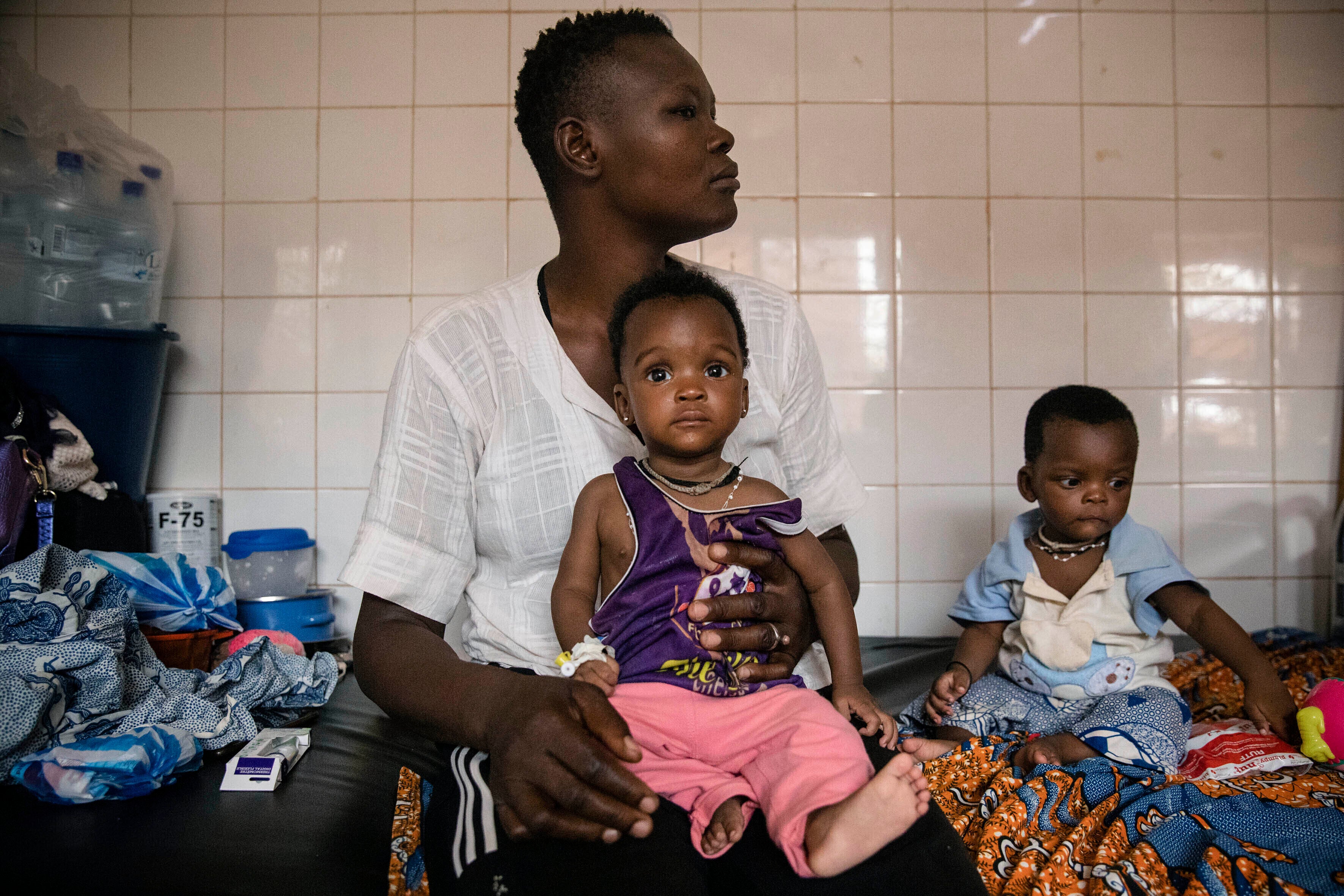UN: Millions left with no aid as West Africa suffers worst hunger crisis in 10 years
The United Nations food agency says millions of hungry people in West Africa are left without aid because it is struggling with limited funding to respond to the region's worst hunger crisis in 10 years

Your support helps us to tell the story
From reproductive rights to climate change to Big Tech, The Independent is on the ground when the story is developing. Whether it's investigating the financials of Elon Musk's pro-Trump PAC or producing our latest documentary, 'The A Word', which shines a light on the American women fighting for reproductive rights, we know how important it is to parse out the facts from the messaging.
At such a critical moment in US history, we need reporters on the ground. Your donation allows us to keep sending journalists to speak to both sides of the story.
The Independent is trusted by Americans across the entire political spectrum. And unlike many other quality news outlets, we choose not to lock Americans out of our reporting and analysis with paywalls. We believe quality journalism should be available to everyone, paid for by those who can afford it.
Your support makes all the difference.The U.N. World Food Program said Wednesday that millions of hungry people in West Africa are without aid as the agency struggles with limited funding to respond to the region’s worst hunger crisis in a decade.
Nearly half of the 11.6 million people targeted for food aid during the June to August lean season are not receiving any assistance, the agency said in a statement. It warned that hundreds of thousands of people are at risk of joining armed groups, getting married early or engaging in “survival sex” in their desperation to survive.
“We’re in a tragic situation. During this year’s lean season, millions of families will lack sufficient food reserves to sustain them until the next harvests in September," said Margot Vandervelden, WFP interim regional director for Western Africa. "We must take immediate action to prevent a massive slide into catastrophic hunger,” she said.
Long before last year’s flooding and Russia’s war in Ukraine, West Africa already was facing its worst food crisis in 10 years with more than 27 million hungry people mainly as a result of conflicts but also due to drought and the economic impacts of the COVID-19 pandemic.
Food insecurity in West and Central Africa is now affecting 47.2 million people in this year's lean season which is when hunger peaks, the WFP said, with women and children the most vulnerable groups.
“Malnutrition rates have also surged, with 16.5 million children under 5 set to be acutely malnourished this year – an 83 percent rise from the 2015-2022 average,” the agency said.
In central Sahel countries of Mali, Burkina Faso, and Niger where jihadists have become increasingly deadly, U.N. agencies estimate that the number of people fleeing violence there has nearly quadrupled from 30,000 in January to 110,000 people in June.
“We need a twin-track approach to stop hunger in the Sahel – we must address acute hunger through humanitarian assistance while tackling the structural causes of food insecurity by increasing investments in resilient food systems and expanding government social protection programmes,” Vandervelden added.